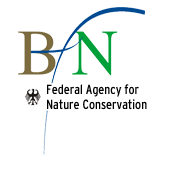TEEBi-Russ
Ecosystem services evaluation in Russia and other NIS countries of Northern Eurasia: first steps"
Background
In view of the growing anthropogenic load on the global ecosystem, as expressed in such phenomena as the energy and climate problems or the tremendous loss of biological diversity, it is becoming ever more urgent to control the various and increasing claims upon limited resources, and to ensure sustainable land use. The attractiveness of the ecosystem service (ESS) concept is based on its integrative, interdisciplinary and transdisciplinary character, as well as its linking to environmental and socio-economic concepts (Grunewald & Bastian 2015). Their great political relevance has been expressed e.g. in the Millennium Ecosystem Assessment (MA 2005) and in TEEB (2009).
Ecosystems of Russia and Northern Eurasia provide a huge package of ecosystem services being very important not only for these countries but also on a global scale (e.g. carbon sequestration, water cycles, biodiversity). Global climate regulation strongly depends on the ecosystems of this region. Thus, normal ecosystem functioning in the Russian Federation (RF) and other Newly Independent States (NIS) is crucial for the sustainable development of these countries and the whole world.
The question rises whether it is possible to prevent rapid and massive degradation of natural ecosystems and their services in this region caused by growing human pressure and ongoing climate changes by effective mechanisms for integration ESS values in making economic and political decisions?
Project
The aim of the project is to initiate a process to develop a system for assessing ecosystem services in the Russian Federation (RF) and other post-Soviet states (TEEB supporting national processes in NIS). Players of science, politics, government, economy and society shell be involved. Methodological steps like quantification, analyses, initiation and communication of successful examples to social and economic valorisation of the natural capital in Russia and NIS countries will be applied. The project aims to develop close cooperation with Russian politics and science representatives to give impulses to make benefits and values of nature more accurately and more visible. Strategic proposals are to be jointly developed, such as the better integration of the performance and benefits of ecosystems and landscapes into public and private decisions, to maintain the natural resources and biodiversity in the countries and their regions, lastingly.


![[Translate to English:] Leibniz Gemeinschaft](/fileadmin/user_upload/ioer_de/img/logo-leibniz-gemeinschaft.svg)
![[Translate to English:] Dresden concept](/fileadmin/_processed_/2/1/csm_logo-dresden-concept_430c661ad7.png)

